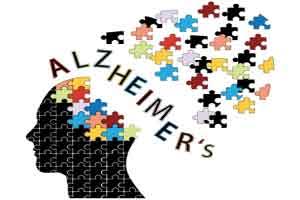- Home
- Editorial
- News
- Practice Guidelines
- Anesthesiology Guidelines
- Cancer Guidelines
- Cardiac Sciences Guidelines
- Critical Care Guidelines
- Dentistry Guidelines
- Dermatology Guidelines
- Diabetes and Endo Guidelines
- Diagnostics Guidelines
- ENT Guidelines
- Featured Practice Guidelines
- Gastroenterology Guidelines
- Geriatrics Guidelines
- Medicine Guidelines
- Nephrology Guidelines
- Neurosciences Guidelines
- Obs and Gynae Guidelines
- Ophthalmology Guidelines
- Orthopaedics Guidelines
- Paediatrics Guidelines
- Psychiatry Guidelines
- Pulmonology Guidelines
- Radiology Guidelines
- Surgery Guidelines
- Urology Guidelines
Mimicry can help patients with Alzheimer's

London : Imitating movements can help Alzheimer's patients regain some of their lost abilities due to the memory-impairing brain disorder, reveals an interesting study.
Copying what someone else is doing is a basic social building block that helps people to learn and it can also help Alzheimer's patients, for whom there is neither any cure and nor anyway to slow or prevent the illness.
"Our results suggest that imitation could be used during rehabilitation of Alzheimer's patients," said Ambra Bisio, postdoctoral researcher at the University of Genoa in Italy.
"Alzheimer's patients are still able to voluntarily imitate the movement of an object, as well as that of a human being" Bisio said.
"If this ability is still in place, a patient could relearn how to perform actions that have become difficult due to the disease," Bisio noted.
Initially it was doubtful that whether the hardwired learning function of the brain would still be operating normally for patients.
The findings, published in the journal Frontiers in Aging Neuroscience, showed that at least for mild stages of the disease, Alzheimer's patients retained this ability to imitate or mimic a simple gesture by a human or a moving dot on a computer screen, suggesting that such exercises may complement current therapeutic strategies.
Further, the study revealed that patients performed better with the human trainer than they did with the computer, during both physical and cognitive rehabilitation.
This may be because the emotional response that a patient experiences when interacting with a real person is still more beneficial than it is distracting, the researchers maintained adding that the results will help to guide better strategies for rehabilitating patients in the future.

Disclaimer: This site is primarily intended for healthcare professionals. Any content/information on this website does not replace the advice of medical and/or health professionals and should not be construed as medical/diagnostic advice/endorsement or prescription. Use of this site is subject to our terms of use, privacy policy, advertisement policy. © 2020 Minerva Medical Treatment Pvt Ltd